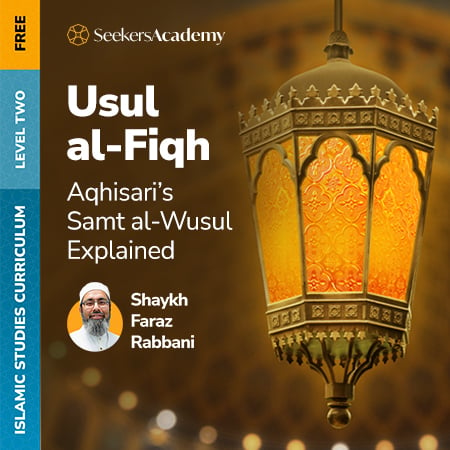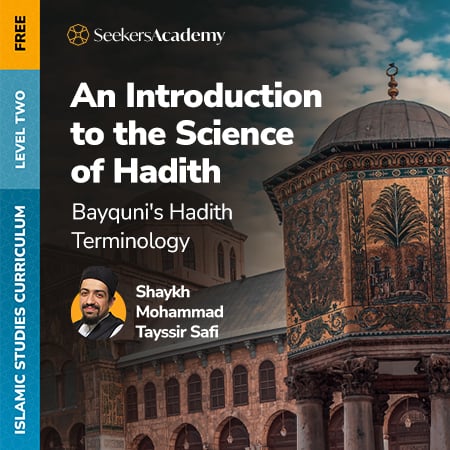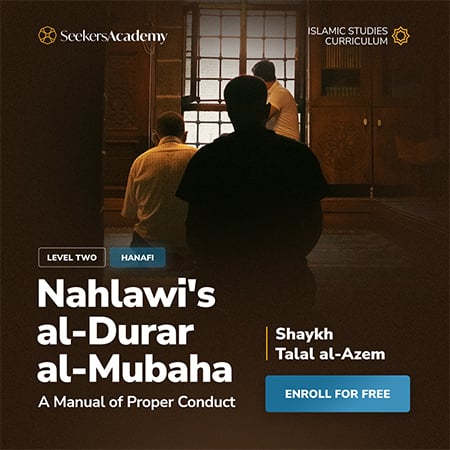
This is a Level Two course in the Islamic Studies Curriculum.
Allah’s guidance has reached us primarily through words, which are themselves vessels of meaning. Being people of purpose, the scholars of our great tradition developed principles of interpretation by which they could reliably derive sound meanings from these primary texts.
The legal rulings derived, their details, and their applications are termed Fiqh (Islamic Jurisprudence); the theories of law and aforementioned hermeneutic principles by which these rulings (ahkam or furu’) are derived are termed Usul al-Fiqh (Principles of Jurisprudence).
Samt al-Wusul is a summary of the Manar al-Anwar of Imam Nasafi, a relied upon the intermediate epitome of the principles of jurisprudence employed by Imam Abu Hanifa, which he inherited from his teachers and are employed by his adherents, the most numerous of the four schools of jurisprudence, to the present day.
While not immediately necessary in order to conform with the command of Allah, knowledge of these legal principles are necessary in order to deepen our appreciation and understanding of divine guidance as it relates to our outward actions and a necessary prerequisite to studying Fiqh in the intermediate stage.
This text covers the discussions on the sources of law, the command, the prohibition, intrinsic and extrinsic good and bad, the levels of indication of words and their usages, the levels of the decisiveness of establishment of texts, consensus and analogy, moral responsibility, and some closing discussions.
Students will learn the principles by which meanings are understood from words according to the Hanafi School, and how rulings are derived from primary texts. Students will gain a deeper understanding and appreciation of Islamic Law and the ability to study it deeper.
- Teacher: Shaykh Faraz Rabbani
Samt al-Wusul is a summary of the Manar al-Anwar of Imam Nasafi, a relied-upon intermediate epitome of the principles of jurisprudence employed by the Hanafi School.
Imam Aqhisari, seeing the difficulty in reading the Manar in one’s early stages of study, decided to simplify it. So he summarized issues, simplified expressions, and explained the more subtle parts of the Manar. His summary has more detail and nuance than Ibn al-Halabi’s Mukhtasar al-Manar and is thus frequently studied after it.
Samt al-Wusul is an important work for all Level Two Islamic Studies Curriculum students. It gives a good grounding in the essential concepts of Usul al-fiqh, and is a stepping stone for the student to then study a commentary on the Manar thereafter in Level Three.
- This course is for adults
- It is particularly beneficial for students of fiqh
- This is a Level Two course. The Mukhtasar al-Manar course, also in Level Two is recommended before this.
- This course can also be taken by anyone who is interested in understanding how the laws we act on are derived.
At the end of this course, students will be able to :
- Understand the core interpretative method by which the Hanafi school’s rulings are derived.
- Understand why people differed in their understanding of the Quran and Sunna.
- See the issues studied in fiqh with a deeper understanding of how they are derived from the primary texts.
- Read fiqh texts with more accurate reading and understanding.
- Understand how ijtihad works.
- Understand how the Quran’s words and indications are understood.


